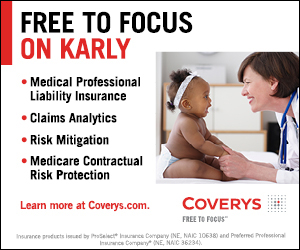Q: I know I am supposed to conduct employee evaluations, but am struggling with whether or not to do so this year given the stress and strain my team has been under. I want to provide them with feedback, but am concerned that any areas of concern or growth I identify may lead to unhappy staff and unnecessary turnover. What are other practices doing in this area? Are they even giving reviews this year or just giving raises to keep the staff they have from leaving?
I think we can all agree that employees want to feel as though their contributions matter; that their boss knows what needs to be accomplished and provides the resources and feedback to help them be successful. For that reason, carving out time to spend with each employee to discuss their performance, celebrate their ‘wins’ and identify areas for renewed emphasis or growth is an important component of employee development and retention – especially in our current environment.
I think the real question then is not ‘Should I’? but instead, ‘How should I?’. Begin with a reality check. The last two years have been a lesson in crisis management. Employees who have weathered this storm with you have experienced their own form of stress, frustration and perhaps even trauma. Emotions like this drain staff energy and negatively impact focus. Combine that with the diversion of time away from core job responsibilities to manage the COVID crisis of the moment and you have an environment where previous expectations may need to be adjusted to account for current realities. I’m not suggesting that you grant a pass to all employees with performance and/or behavior issues, but you should evaluate the seriousness of the infraction(s) before deciding how best to proceed. Now is not the time to nit-pick the small stuff.

During the review, verbally acknowledge that this last year was still far from ‘normal’. Point out the high points that you noticed despite the workplace challenges and ask your employee to do the same. Make sure your gratitude for their efforts comes through loud and clear. If this employee is a ‘lynch pin’ in keeping your practice going, decide whether or not the areas of growth or weakness you’ve identified are deal-breakers. If you feel your practice is better off with this employee than without them, consider addressing areas of growth as a future objective rather than a past mistake that can’t be undone. This allows you to keep the overall mood of the evaluation positive and forward facing, while still providing an opportunity to put a plan together to ensure that your areas of concern don’t slip further behind. Say something like, “I feel like we’ve been in a reactive state for the past few years due to COVID and it’s been all hands on deck. However, for this upcoming year, I’d like to hit the reset button. I want all of us to shift to a more proactive stance with renewed focus in our roles. In your position, that means…” Allow the employee to provide their thoughts and create an opportunity for buy-in. Hopefully they see things the same way you do, but regardless of whether or not the employee agrees with you, you can still outline the goals you have for them in the upcoming year. Be sure to include metrics or examples of what a ‘good job’ looks like and the time frames you have in mind for each objective.
The other approach is more direct. If the current COVID climate isn’t a factor in the employee’s poor performance/attitude or the employee’s contributions have deteriorated to the point where it’s hurting your practice or driving others out the door, then you need to be honest about your observations and your expectations in their evaluation. Ignoring this part of the conversation or using the goal-setting approach described above will not solve the problem(s) and may lead to more serious issues down the road. It comes with a potential flight risk, but shortcomings of this caliber may be more detrimental if the employee stays than if they go.
Regardless of which strategy you use, I encourage you to make time for these one-on-one conversations. The most valuable thing you can give to your team is your time, so while a pay raise may be in order, providing it without a conversation is a missed opportunity.













